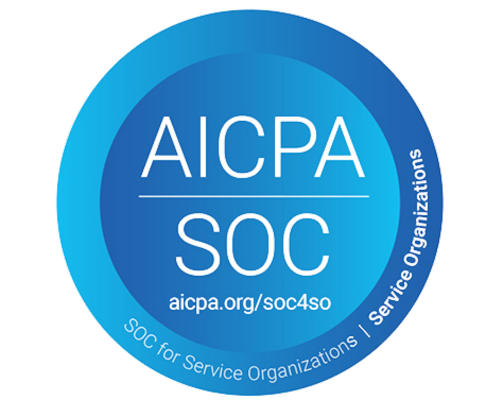The True Cost of Mismanaged Unemployment Claims
What HR and Compliance Teams Need to Know to Protect Budgets, Reputation, & Regulatory Standing in 2025
Unemployment claims are on the rise, and the cost of mismanagement is growing even faster. In 2025, the U.S. Department of Labor reports that over $18.1 billion in improper unemployment payments have already been issued nationwide, with a significant share linked to employer-side errors. These include late responses, missing documentation, or not contesting ineligible claims.
For HR and compliance teams, unemployment claims are no longer a basic task. They are a measurable financial and regulatory risk. Inaccurate or incomplete handling of just a few claims can result in higher state unemployment insurance (SUI) tax rates, more frequent audits, denied relief from charges, and legal complications that stretch internal resources.
If your organization operates in multiple states, relies on seasonal or high-turnover roles, or lacks visibility into claims activity, you are especially vulnerable. The time to rethink your strategy is now.
The Hidden Financial and Compliance Risks of Poor Claims Management
When employers fail to properly manage unemployment claims, the impact is immediate and far-reaching. Each claim affects your SUI tax rate. Failing to respond, submitting incomplete documentation, or allowing invalid claims to go unchallenged leads to higher tax liabilities.
According to the U.S. Department of Labor, for the 12-month period ending June 30, 2024, the national unemployment insurance (UI) program reported an estimated improper payment rate of 14.41%. This figure significantly exceeds the 10% threshold established by the Payment Integrity Information Act (PIIA) of 2019. Such a high rate underscores the critical need for employers to implement strong unemployment claims management systems that reduce financial exposure and ensure regulatory compliance.
State agencies closely monitor how employers handle claims. Poor documentation, inconsistent timelines, or a pattern of non-responses can result in more frequent audits, delays in processing, and denial of relief from charges. Former employees also take notice. If the process feels unclear or inconsistent, they are more likely to appeal and put added pressure on HR teams while increasing legal risk.
Every state has its own claim deadlines, documentation standards, and appeals processes. Without a centralized and standardized workflow, compliance risk escalates quickly. A lack of process is not an excuse regulators accept.
Best Practices for Gaining Control of Your Unemployment Claims
To manage risk and contain costs, employers need to move beyond manual claims handling and implement a structured, proactive strategy. A modernized approach not only helps reduce errors but also ensures better compliance and protects your tax position.
Start by centralizing and standardizing your claims process. Then apply these best practices:
- Centralize all claims activity in one platform or service to ensure consistency across locations and states
- Track all state-specific deadlines using automated alerts and workflows to avoid costly missed responses
- Standardize documentation, including separation notices, job descriptions, and disciplinary records
- Contest ineligible claims to protect your SUI rate, and consult compliance experts when unsure
- Monitor and audit outcomes regularly to identify high-risk patterns and prevent systemic issues
- Integrate claims processes with your existing HRIS or payroll system for better visibility and efficiency
- Train HR and frontline managers on proper offboarding protocols and claims procedures
- Partner with a trusted third-party claims administrator to ensure compliance and reduce internal burden
When these steps are followed consistently, unemployment claims become a manageable, measurable process that supports long-term cost control and compliance.
How
Total UCM by HRlogics Protects Employers from Risk
Total UCM is a comprehensive unemployment claims management solution designed specifically for employers seeking better control, accuracy, and cost containment. It gives HR, compliance, and finance teams the tools they need to manage claims with consistency and confidence.
Our platform automates the claims process in all 50 states and monitors every case in real time to avoid missed deadlines or overlooked disputes. Documentation is reviewed by our in-house team of experts to ensure all required information supports your position and meets each state’s standards.
Total UCM integrates with your existing HRIS and payroll platforms, streamlining information flow and reducing manual data entry. Our real-time reporting provides complete visibility into claims trends, volumes, and SUI tax rate impact, so leaders can make data-driven decisions.
The result is reduced administrative time, lower financial exposure, and a stronger compliance record with state agencies. Total UCM turns a reactive process into a proactive strategy that protects your workforce and your bottom line.
Results You Can Measure and Next Steps You Can Take
Employers using Total UCM report fewer uncontested claims, better documentation across departments, and greater control over SUI tax increases. The solution helps streamline workflows, strengthen agency compliance, and reduce the burden on internal HR and legal teams.
Unemployment claims are not just another HR task. They are a point of compliance and cost that should be fully owned and actively managed.
It is time to replace risk with results and take control of your claims.
Schedule a demo today and discover how we make it happen.






